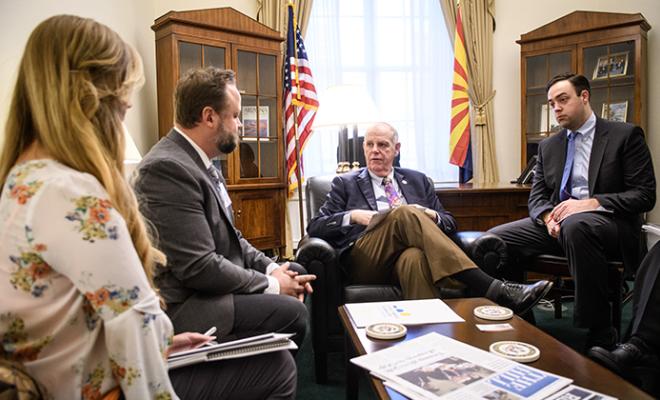Over the summer, Congress considered -- and ultimately rejected -- a series of bills to repeal and replace the Affordable Care Act. Throughout the debate, cystic fibrosis advocates played a key role in helping members of Congress understand the needs of our community.
From the beginning of this process, we have made it clear that any changes to our health care system must protect the needs of the CF community. Guided by our core principles for health care reform, we will continue to advocate tenaciously to help people with CF get the adequate and affordable care they need to live full, healthy lives.
This week, Congress will return from its August recess and is expected to launch a bipartisan effort to stabilize the health insurance marketplace. For those with CF, health care coverage is a necessity, so we hope any policy changes move us closer to a system that works well for our community. These potential changes would impact people with CF who get their coverage through health insurance marketplaces, which help cover many people who don't get coverage through their employer or a public program.
Together, we've been working to make sure our health care system works for people with CF, and there are fixes we can ask Congress to enact immediately that would benefit our community. The Cystic Fibrosis Foundation will be urging Congress to take the following steps to ensure the marketplaces remain stable, and people with CF can get the adequate, affordable care they need:
- Establish a reinsurance program to stabilize insurance markets and make affordable health insurance coverage available to people with CF.
Reinsurance programs, sometimes called “stabilization funds,” are essentially insurance for insurers. These funds subsidize the cost of high-risk individuals for insurance companies and keep premiums down. Similar programs have slowed premium growth by 10 to 14 percent and helped promote insurer participation.
People with CF have unique health care needs, and they can often accrue hundreds of thousands of dollars per year in medical bills. Keeping premiums low is absolutely critical to ensuring they can get the quality, specialized care they need to stay healthy.
That being said, reinsurance programs can only be effective if they are funded adequately, so it is critical that this program is sufficiently funded. - Continue to fund outreach and enrollment programs for health insurance to build a more balanced risk pool so people with CF have access to affordable health coverage.
Since the establishment of the marketplaces, the government has invested in programs to educate people about their health insurance options and to help them enroll in a plan. Research shows that states that invest significant resources to these marketing, education, outreach, and enrollment assistance programs enjoy higher rates of enrollment compared to states that do not.
People with CF have specific health needs, so learning more about their coverage options and being able to sit down one-on-one with an expert can help ensure that they make the best decision for themselves and their families. These services also bring more people into the marketplaces, which creates a more balanced risk pool and helps keep premiums down. - Explore options to keep insurers in the marketplaces and ensure robust coverage options for people with CF.
A robust, healthy marketplace requires multiple insurers in a given market to foster competition. This, in turn, keeps premiums low and ensures coverage is available to people with CF.
Congress should explore policy options to ensure that everyone can enroll in an adequate, affordable plan. For instance, Congress could consider requiring insurers that offer federal employee plans, which already exist in every county nationwide, to also offer plans on the exchanges.
Our collective voice is loud, and the CF community should feel proud of the impact we've had and will continue to have in our fight to make sure everyone with CF can get the care they need.
The Foundation will continue to keep you updated as Congress debates how to move forward. Visit our health care reform section to learn more about our policy recommendations for stabilizing the health insurance exchanges and ensuring that people with CF have access to adequate, affordable care.





